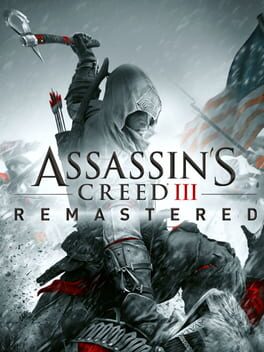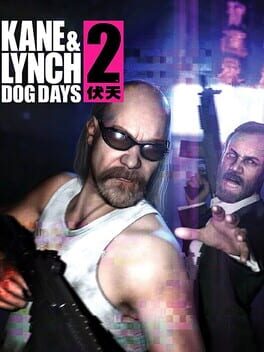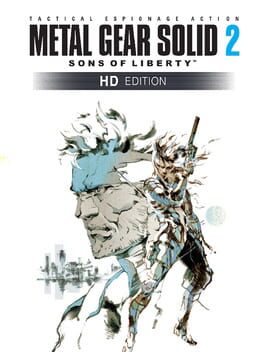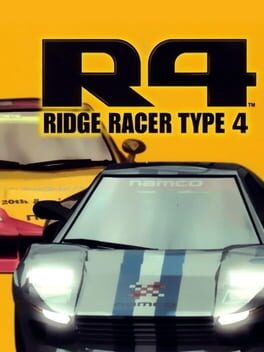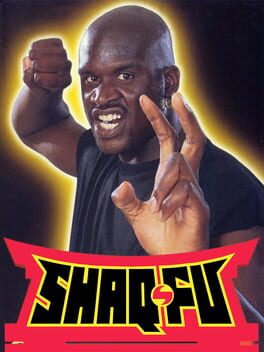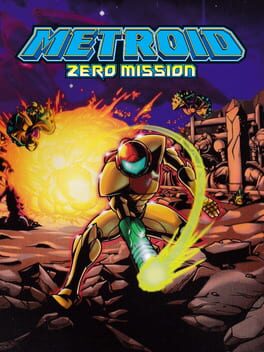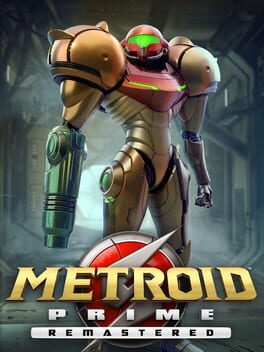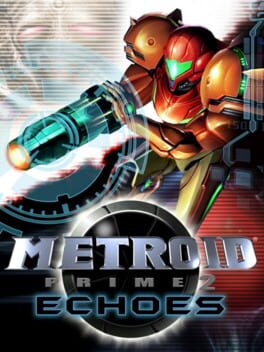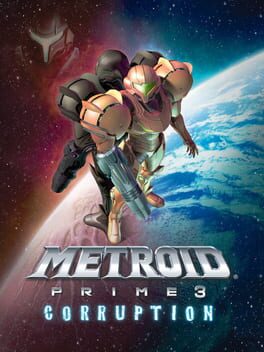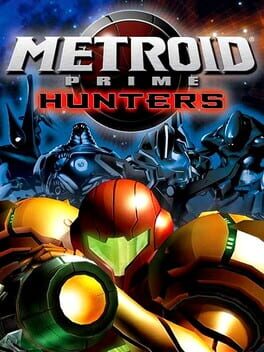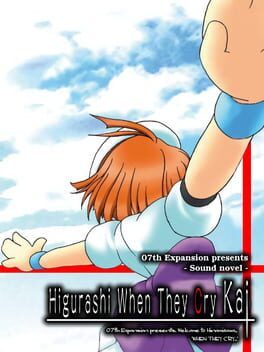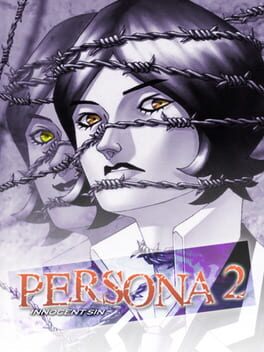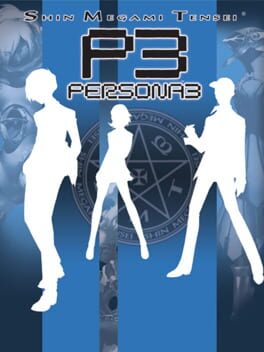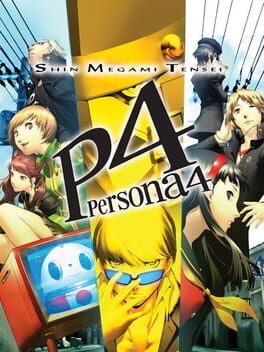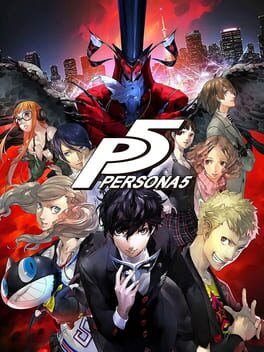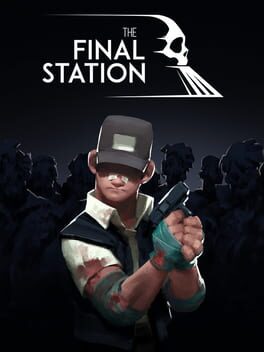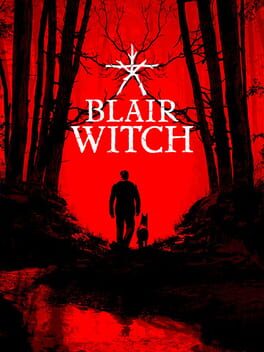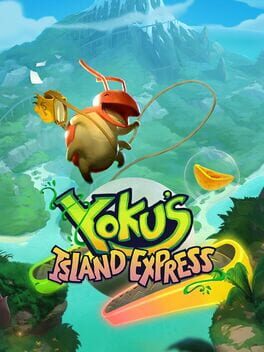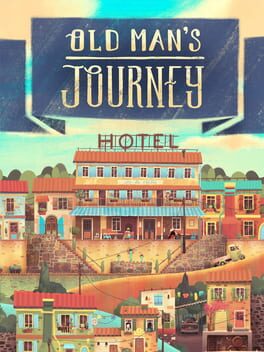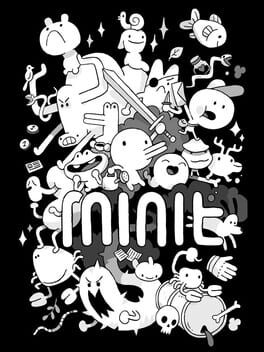EdenIsNotHere
235 reviews liked by EdenIsNotHere
Balatro
2024
I think what I love most about balatro is just how raw it is. Theres no plot where I have to play poker hands to defeat baddies, no characters or really any meta progression outside of unlocking things, which can be avoided with a code. It honestly doesn't feel too far off from something like windows solitaire or minesweeper. Balatro doesnt waste its time with any fluff because it knows that must fun part of it is entirely decision making and neuron activations from number going up, and I love that.
ok but please add another song to the game please i can only listen to the same song over and over again for so long
ok but please add another song to the game please i can only listen to the same song over and over again for so long
there's very little when it comes to nice things i have say about this game so let me begin with something that i did like before getting into it fully. Connor as a character is interesting and among the best across the series bringing a breath of fresh air to things. i'll go one further and say that Haytham was also solid and i enjoyed their relationship dynamic. if it wasn't for this i'm not sure if i would've been able to finish this, even when rushing the mainline content as i did in the end.
with that out of the way, what the hell happened here? i've never considered myself an Assassin's Creed fan (I was interesting but highly flawed while doing massive damage in terms of influence for the medium, II was a surprise improvement but just fine mainly, Brotherhood and Revelations were solid music listening/multitasking games but gave diminishing returns) by any means but the games had felt mechanically sound for the most part before this. Assassin's Creed III throws everything and the kitchen sink into its gameplay systems and nails nothing.
perhaps my biggest complaint is the setting shift. i'm not going to get into the story or anything of the sort here but from a gameplay standpoint, it was a complete mistake in my opinion. taking a series known for its movement systems and putting it in a place where you have barely any vertical movement options is one of the most baffling decisions i can think of. they attempted to remedy this with tree climbing (which again feels busted as does most of the rest of the gameplay here <3) and scripted movements through buildings when entering a door or window but it's a poor replacement. when you get out of the more residential areas of the map into the wilderness it gets even worse as it's just vast empty space which is miserable to navigate (especially when it is snowy).
elsewhere stuff like the combat takes a step down too. combat in the previous entries was never a strong suit but it was at least painless in the mediocrity. here you can see movements made towards trying to improve everything but it doesn't pan out to me. i'm not sure how much of it is III itself or maybe the remaster being fucked up but the game feels like it has this weird animation priority to all of its movements which leads to problems with counters not even registering half the time. some contextual environmental based attacks were added among other things but as i have brought up like three times now elsewhere, it feels half baked. Connor is an absolute beast in combat so most of it goes by quickly still but i 100% would've taken what we had before still.
this leaves me with the pacing which might have damned the full thing in the end. i have played and loved a lot of slow burn games over the years so know that it doesn't come lightly when i say that this is one of the slowest games i have ever played. you don't even get around to playing as the actual main character for a couple of sequences into the game and then you don't even get your actual assassin's robes for another few after that. i don't mind a build up for things but when the surroundings are so rotten it just was too much. you bounce from one gameplay element to the next constantly in a state of tutorials for what feels like 75% of the game.
somewhere within all the bloat the game sees fit to introduce a half baked hunting system which barely works, naval combat (which i hope is improved in Black Flag or that shit is going to be miserable too lmao), and even a crafting system that i somehow didn't even notice or come across with nearly 22 hours in the game. just a smothering sense of excess. literally don't know how this game even came together, even as it is within Ubisoft's unhinged annual release format of the time period. genuinely feel so bad for anyone who was working there.
gonna need a long break before i move onto Black Flag at this point.
with that out of the way, what the hell happened here? i've never considered myself an Assassin's Creed fan (I was interesting but highly flawed while doing massive damage in terms of influence for the medium, II was a surprise improvement but just fine mainly, Brotherhood and Revelations were solid music listening/multitasking games but gave diminishing returns) by any means but the games had felt mechanically sound for the most part before this. Assassin's Creed III throws everything and the kitchen sink into its gameplay systems and nails nothing.
perhaps my biggest complaint is the setting shift. i'm not going to get into the story or anything of the sort here but from a gameplay standpoint, it was a complete mistake in my opinion. taking a series known for its movement systems and putting it in a place where you have barely any vertical movement options is one of the most baffling decisions i can think of. they attempted to remedy this with tree climbing (which again feels busted as does most of the rest of the gameplay here <3) and scripted movements through buildings when entering a door or window but it's a poor replacement. when you get out of the more residential areas of the map into the wilderness it gets even worse as it's just vast empty space which is miserable to navigate (especially when it is snowy).
elsewhere stuff like the combat takes a step down too. combat in the previous entries was never a strong suit but it was at least painless in the mediocrity. here you can see movements made towards trying to improve everything but it doesn't pan out to me. i'm not sure how much of it is III itself or maybe the remaster being fucked up but the game feels like it has this weird animation priority to all of its movements which leads to problems with counters not even registering half the time. some contextual environmental based attacks were added among other things but as i have brought up like three times now elsewhere, it feels half baked. Connor is an absolute beast in combat so most of it goes by quickly still but i 100% would've taken what we had before still.
this leaves me with the pacing which might have damned the full thing in the end. i have played and loved a lot of slow burn games over the years so know that it doesn't come lightly when i say that this is one of the slowest games i have ever played. you don't even get around to playing as the actual main character for a couple of sequences into the game and then you don't even get your actual assassin's robes for another few after that. i don't mind a build up for things but when the surroundings are so rotten it just was too much. you bounce from one gameplay element to the next constantly in a state of tutorials for what feels like 75% of the game.
somewhere within all the bloat the game sees fit to introduce a half baked hunting system which barely works, naval combat (which i hope is improved in Black Flag or that shit is going to be miserable too lmao), and even a crafting system that i somehow didn't even notice or come across with nearly 22 hours in the game. just a smothering sense of excess. literally don't know how this game even came together, even as it is within Ubisoft's unhinged annual release format of the time period. genuinely feel so bad for anyone who was working there.
gonna need a long break before i move onto Black Flag at this point.
The fact that Kane & Lynch 2: Dog Days has to get described as some kind of """anti-game""" because the taste makers and machinations of big-Video Games have decided for you, or through you, that feeling disempowered and disoriented are inherently non-video game feelings (they're not, and calling it an anti-game is cope against this conservatism) just goes to show that gamers and the games they play and the games that are made for them are most of the time absolutely the tackiest, kitsch ♥♥♥♥. I don't want to hear anyone tell me about what makes the latest Sony movie video game exclusive the vanguard of this industry's accomplishment and cultural worth when Kane & Lynch 2 gets denigrated as either a ♥♥♥♥ game or a anti-game.
Y'all have never played a damn game in your life, is what it really sounds like. This one, and the first, however, slap. So maybe start here.
Y'all have never played a damn game in your life, is what it really sounds like. This one, and the first, however, slap. So maybe start here.
Persona 3 Reload
2024
there's a lot said already abt the hypnotically repulsive audiovisual presentation with the frantic camera and barebones controls, it made me feel tweaked out and paranoid in a horrifying way and it rocked, but the thing worth talking about for me is the structure of this game, how vitally spartan its character is. how utterly, necessarily devoid it is of much sympathy for its leads. i skimmed through a playthrough of K&L1 after playing this, which i have no desire to ever play, and it just felt very of its time. a pair of antiheroes make a huge mess of things and argue incessantly and ruin lives but you gotta love their camaraderie and attitude!! and then the women in their life dare to nag nag nag at them about all the fucked up shit they get put through because of them until they inevitably get shot, because they talk too much
the second game inherits their disgusting personalities and their capacity for misery--in fact increases that aspect to a fever pitch--and you might look at it as just following in the boring footsteps of its predecessor with a more interesting aesthetic going for it. but the difference is how unsettlingly off things feel from what you'd expect. the cutscenes are so curt, there is hardly any kind of relatable stakes for the characters other than some vague deal to further imperialism (they dont care abt that part obviously why would they). everything happens with hardly any dramatic rhythm, just hot headed banter and death, with things getting worse and worse. the misogyny is still here but even that has a different tone; the women in kane and lynch's lives this time become little more than convenient excuses for them to continue their evil rampaging, not the motivation to do better that they probably tell themselves they are to help them sleep at night. they're in a hell of their making.
the bluntness behind the narrative helps make the bond between the two MILES more interesting. lynch's schizophrenia isn't exploited for :twisted: funny comedy this time but instead to render him as a pathetic crazed animal with a gun. and the stroke of genius of basically ignoring how K&L1 ends gives kane's more levelheadedness by comparison a delusional sociopathic underpinning. they scream at each other about how much they ruined each other's lives (much like the women they love in the previous game hmm [thinks really hard abt this]) yet at no point in the game does that tension come to a head between them like the first game would tease. it always evaporates away awkwardly. there's no bro moments of "heh you're alright" or anything like that ever in sight because they do not deserve that, they just drop their in-the-moment tantrum and go back to doing the only thing they ever know how to do. this is because, despite how they are unable to actually feel love or not destroy things, they ultimately understand each other better than anyone. they NEED each other so bad. AND YET!!! not even this is portrayed with much more than a kind of pity, if that, it's just a human tendency to prefer not being alone in your cosmic punishment. it's nothing to get too attached to.
if this game has anything that could be called a positive human emotion it wants to hone in on, it's this, and it is so incredibly compelling in its smallness to me that it sticks out beyond the rest of the genre subversion in the game to heighten it further. even a couple of rabid dogs will feel loyalty towards each other, when they know neither of them's going to heaven
the second game inherits their disgusting personalities and their capacity for misery--in fact increases that aspect to a fever pitch--and you might look at it as just following in the boring footsteps of its predecessor with a more interesting aesthetic going for it. but the difference is how unsettlingly off things feel from what you'd expect. the cutscenes are so curt, there is hardly any kind of relatable stakes for the characters other than some vague deal to further imperialism (they dont care abt that part obviously why would they). everything happens with hardly any dramatic rhythm, just hot headed banter and death, with things getting worse and worse. the misogyny is still here but even that has a different tone; the women in kane and lynch's lives this time become little more than convenient excuses for them to continue their evil rampaging, not the motivation to do better that they probably tell themselves they are to help them sleep at night. they're in a hell of their making.
the bluntness behind the narrative helps make the bond between the two MILES more interesting. lynch's schizophrenia isn't exploited for :twisted: funny comedy this time but instead to render him as a pathetic crazed animal with a gun. and the stroke of genius of basically ignoring how K&L1 ends gives kane's more levelheadedness by comparison a delusional sociopathic underpinning. they scream at each other about how much they ruined each other's lives (much like the women they love in the previous game hmm [thinks really hard abt this]) yet at no point in the game does that tension come to a head between them like the first game would tease. it always evaporates away awkwardly. there's no bro moments of "heh you're alright" or anything like that ever in sight because they do not deserve that, they just drop their in-the-moment tantrum and go back to doing the only thing they ever know how to do. this is because, despite how they are unable to actually feel love or not destroy things, they ultimately understand each other better than anyone. they NEED each other so bad. AND YET!!! not even this is portrayed with much more than a kind of pity, if that, it's just a human tendency to prefer not being alone in your cosmic punishment. it's nothing to get too attached to.
if this game has anything that could be called a positive human emotion it wants to hone in on, it's this, and it is so incredibly compelling in its smallness to me that it sticks out beyond the rest of the genre subversion in the game to heighten it further. even a couple of rabid dogs will feel loyalty towards each other, when they know neither of them's going to heaven
Hideo Kojima's career is fascinating, and it's not something you can hope to find out about from "The Official Version". You kind of have to dig into old interviews, and have first-hand memories of long-delisted websites and discarded promotional material. GW has erased the ugly details, but I can't say goodbye to yesterday, my friend. Kojima thrived on the sidelines. He was originally hired as a project planner on Konami's MSX team, in the offices that the management didn't pay much attention to. The high-stakes positions were all working on Famicom and arcade games, and Kojima spent the first decade of his career in the shadows, catering to a small, enthusiast market with Japanese home computer releases and text-heavy adventure games. It's easy to over-romanticise this era. It wasn't easy. There was a lot of mismanagement and the expectation for relentless crunch, with many members of staff spending days on end in the office without leaving, but the games that came from those teams were pretty special. They were purposefully constructed, delivering a clear worldview and commenting on the ethical dangers of scientific developments in a politically unstable world. Then MGS1 was a huge international success, and all eyes were on Kojima.
From the early days, it was clear that Kojima had a unique confidence and self-belief. Some may call it ego or even narcissism, but it's what gave him the drive and ambition to attempt blending dense, socially relevant stories with traditional videogame action. When the bulk of the Japanese games industry was still hiding behind publisher-insisted pen names, Kojima opened Metal Gear 2: Solid Snake with an introductory credits sequence, naming each member of staff, saving himself for the biggest credit. It made sense. MSX2 owners who'd played Metal Gear and Snatcher knew that there was a rare quality to Hideo Kojima's games, and Metal Gear 2 was the promise of the Kojimiest game yet. Policenauts would similarly promote itself on the name of its director, delving into the production process with behind the scenes books and bonus discs that were fairly uncommon forms of game merchandise in the mid-90s. Before MGS1 had made the west aware of him, Kojima was putting his face on soundtrack CDs. He wanted the spotlight, but he didn't know how demanding it would be of him.
Metal Gear Solid 2 was announced, and was propped up as the game for the new millennium. The one thing that would chrysalise the medium into a new form. In tandem with the growing interest in the internet, the significance of home computer ownership was really taking hold. DVD players and digital TV services were selling themselves on "Interactive" features, reportedly blurring the line between audience and participant (we didn't know at the time that the peak of this technology would be Beehive Bedlam). Sony were convinced that Windows PCs were too technical and business-focused for mainstream adoption. There would be no overlap between the computer and the living room. The word at the time was that the PlayStation 2 was going to be the thing to take people into this new, interconnected era, and traditional forms of entertainment would become a memory of the 20th Century. The promise of the "interactive movie" that had been dangled towards early adopters of CD-ROM, finally coming to fruition. From Final Fantasy X to Oddworld: Munch's Oddysee, and perhaps most ridiculously of all, Tomb Raider: Angel of Darkness, many new titles were selling themselves on the promise to bridge the gap between these mediums, but for many, MGS2 seemed like the best bet to accomplish it. That's a lot of pressure for a game where you navigate boxy rooms, avoiding blue vision cones.
Metal Gear Solid 2 trailers were bold. Not only were they promising a game with unforeseen levels of interactivity, but wild narrative swings. We were told Solid Snake was dead. We were told he was the leader of the terrorist organisation putting the world at ransom. We'd anticipated a game that would radically shift our perception of the prior one. When we eventually bought the game, we swallowed the bitter truth when a mysterious Navy SEAL popped up with David Hayter's voice, taking fire at a horny vampire.
Reading pre-release interviews with Kojima, it's clear that he was as convinced by the potential as anyone else. He talks about character movement being impacted by changing wind direction, the integration of voice-recognition and online support. The end results are so compromised that you might not even notice them in the game. The network support got nipped and tucked at so much that in the end, it became an online competition for the opportunity to have your name appear on an in-game dog tag, and a browser-only leaderboard system where you could post your completion stats after you finished. The voice support, adding user-expression to the long, dense CODEC calls? That's the ability to press R2 to have your character audibly think a weird retort. "WHATEVER!" These are the limitations of not only the PlayStation 2 in 2001, but the ability of a Japanese development studio to deliver an action game on new hardware in a three-year project.
MGS2 couldn't live up to those initial ambitions. It didn't fully satisfy those dreaming of something new and transcendent. It was MGS1 again with extra buttons. But oh, what buttons!
MGS2 has so many cool little stealth moves to play around with. You get a real sense of your own ingenuity as you figure your way through each section. VR Missions was everything that MGS1 gameplay could offer. The developers knocked their heads against the walls, spinning its systems off down every conceivable avenue. The frustration of these limitations directly inspired the techniques players could make use of in Sons of Liberty. Players would be able to interact with guards much more intricately, threatening them at gunpoint, disabling walkie-talkies, injuring specific limbs, and shaking them down for extra supplies. Snake and Raiden could roll (or cartwheel), hang from railings, and pop out of cover, ready to fire. Most crucially, you could now aim from a first-person perspective, allowing for much more deliberate action in shoot-outs, or just fuck about with the set dressing to see how many clips KCEJ recorded for the sound of shooting a frying pan with different guns. Shenmue had set a new precedent for how interactive a 3D world could be in a game, and MGS2 picked up the baton to explore how that degree of tangibility could benefit Metal Gear. Hardcore fans who had bought Zone of the Enders solely for the opportunity to play a small section of this game would become intimately familiar with all the quirks and potential of its gameplay, hungry to see how they would be explored in the full campaign. I'm not convinced the Big Shell was the best possible pay-off for these hopes.
It isn't just the fact that players got to spend more time with their favourite muscle man that makes the Tanker section so beloved. It's very purposefully designed to explore MGS2's mechanics, and refreshingly, it borrows little from the structure of the MSX games. Metal Gear had already spent multiple generations reworking and refining the same, familiar setup, and it was exciting to see the series do something different. There's no hostages, no NIKITA puzzle, no underwater facility entrance. It was doing new things, taking out security cameras, shaking down guards for supplies, and sneaking past an audience of a hundred soldiers during a speech. It was exciting. But those old tropes were waiting for us, just around the corner. Justifying themselves via a metatextual reflection upon the previous game.
MGS2 is discussed in hushed, reverential tones these days. If something seemed weird or stupid, you obviously didn't get it. It had been relatively easy to understand a story about genetic inheritance, but memetic inheritance seemed far more abstract. Snake was a son of genetic inheritance, being a clone of the world's most prized soldier, and Raiden, the son of ideological inheritance, with Solidus killing his parents and fostering him as his own brainwashed soldier. Every action he takes is accompanied by a question of how he's being manipulated, and by whom. There's an awkward balance in the game being both radically incisive and incredibly schlocky videogame trash. Whenever it did something too absurd or outright crap, we took faith in the notion that nothing was quite what it seemed. Like there was a hidden truth that would make it all cohesive and brilliant. It was up to us to find it, and if we couldn't figure it out, we could always just pester Kojima and Konami to produce a much more pandering sequel. Full of retcons, underwhelming reveals, and relentless goalpost shifting. Was there ever value in MGS2's outlandish paranormal activity? Did Kojima ever have an answer before his arm was twisted enough to yell "nanomachines" in response to every question? Are we ashamed of our words and deeds for ever thinking the whole of Shell 2 was agonisingly tedious?
Discussing MGS2's story is a sticking your hand in a can of worms and finding a worm-filled rabbit hole at the bottom. A dense, purposefully confusing, and often prescient script. It also has roots in Kojima's 80s action game design, where storybeats are mainly included to intrigue its audience enough to continue playing. Kojima's handwritten script is filled with footnotes, explicitly referencing the Hollywood blockbusters he ripped each idea from. MGS2 was the point where much of Kojima's games became dictated by the promises he'd made in press interviews and pre-release trailers. MGS4 staff have talked about spending months solely working on moments to include in trailers, and then retroactively having to build the game around those moments. That approach started here. Shallow instances of mindblowing spectacle, engineered to shift product with little concern for the long-term impact. Ocelot's arm, Vamp's superhuman abilities, basically everything to do with Dead Cell - they're weird twists, and typically just for the sake of having a weird twist. Vamp's gay relationship with US Marine Corp commander, Scott Dolph, appears to be entirely a sophomoric in-joke targetted at Kojima's then-personal interpreter. MGS2 is simultaneously an earnest musing on the nature of propaganda in the digital age, and a very stupid videogame with absurd arcade game bosses. I don't want to make out like all the silliness is purely problematic or mishandled. There's moments of fun and whimsy I enjoy. Slipping on birdshit and the guard taking a leak off the side of the Strut L. Fatman. It's not the focus, but the old frivolous MSX personality is still here. Just muffled by all the pretension surrounding it. On your first playthrough, you don't know whether you can just enjoy something as a daft joke, or if it's hiding some deeper layer of significance. MGS1 had one foot in gaming's history and another in its future, and MGS2 attempts the same, with messier results in either respect.
The game's English writer, Agness Kaku, has discussed the thankless job of attempting to make MGS2's weird, convoluted script sound engaging through its translation. A lack of reference material, character limits, and heavy rewrites from Konami resulted in the game we have today. It's also clear that she doesn't have much regard for Kojima's script, and attempted to inject it with a richer sense of character and more entertaining dialogue. Many gamers would feel take strong objection to someone, particularly a woman, tinkering with the script from a visionary of Kojima's status, but the bulk of MGS2's most beloved English lines are embellishments on Kaku's part, and her political and literary knowledge lined her up well for the subject matter. However, Konami's insistence on literal translations of certain lines, paired with her personal distaste for Kojima's writing, made the final script fairly patchy and inconsistent. As talented a voice director as Kris Zimmerman is, there are lines of dialogue that are delivered in very odd ways, suggesting the cast didn't really understand the intention behind them. By contrast, Kaku's work on Katamari Damacy presents quite an interesting dynamic. That was a similarly text-rich game, but one with a much more playful tone, and a less demanding writer. She was allowed to completely rewrite the game with very little direction, and the final result was a delight. Katamari writer/director, Keita Takahashi has gone on to learn English at a high level and now lives in San Francisco, where he's expected to speak it as his main language. I wonder if he's ever gone back to look at the English version of his PS2 game.
Metatextually, MGS2 benefits from a constant feeling of distrust. To know whether or not you're seeing the real version. There's an additional distrust of censorship thanks to the game's Q4 2001 release date, the story of terrorists causing destruction and political instability off the coast of New York City, and public sensitivity to the subject matter at the time. Following September 2001, there had been late-stage edits to the game, and as an audience, we can't be sure how compromised the final release is, but even without the real-world parallels, the game is filled with themes of how lies spread and ideas take hold. From the once-tortured child soldier, Raiden, to Peter Stillman's faked disability, to Otacon's disturbing family history, every character in the game has an uneasy relationship with the truth, denying their personal trauma to the world. By the Big Shell portion of the game, there's a question over whether they're real at all, or merely a projection of an elaborate AI construct. Sections of the game that are teased - boss fights with Fortune and Ocelot, as well as the bulk of Shell 2 - go unfulfilled. Raiden breaks through enemy security by lying about his identity, pretending to be one of them, adopting their uniform, and manipulating their body to trick a retinal scanner. Raiden's first quest in the game - disabling a series of explosives - turns out to be an elaborate decoy, while Snake discovers the real bomb off-screen. Snake is playing the real game, and Raiden is still in the VR replica. The Solid Snake game that had been heavily promoted at trade shows and plastered on magazine covers for years beforehand didn't exist. It was all just part of the simulation. This is the dynamic of MGS1 and 2.
The truth of the situation only comes through in the ending.
"It doesn't matter if they were real or not, that's never the point."
"Don't obsess over words so much."
"Everything you felt, thought about during this mission is yours. And what you decide to do with them is your choice..."
Kojima couldn't make something that transcended the medium of videogames. The Emotion Engine was merely a new CPU, comprised of silicon soldered to a circuit board, and shipped to millions of homes within SCE's new electronic toy. When the PS2 became something people could touch and own, the best it could do was play rushed versions of TimeSplitters and SSX that would soon be rendered obsolete by their immediate sequels. The dream was over. The boundaries were brought into stark focus. Metal Gear Solid 2 would be little more than The New Metal Gear Solid, despite the discussion, obsession, interpretation and reinterpretation it would provoke. With the constant focus from fans, it became more than it was. Value was seen in it, and thus, it was there.
Metal Gear Solid 2 changed my relationship with videogames, and not in ways that either its developers, or I, may have hoped. It made me aware of the inherent limitations. Before it, the future of videogames seemed like a boundless, infinite expanse. They could be anything. They could transcend physical limits. They were another dimension. A world of pure imagination. Afterwards, I became aware of just how tethered they were to reality. They were the result of project plans, processing speeds, staff sizes, managerial oversight, limited talent and budgets. They became infinitely smaller. Less significant. Cute. They didn't reflect the limitations of their creators' imaginations, but their ability to deliver a project with realistic expectations. It levelled the playing field. Now, MMOs, which promised entirely new worlds for players to live in, were dragged back to the same context as Pong. It made me realise what a game was. I came to the other side of that, and still loved it. To call it a disappointment is denying the growth that we needed to take. As fans, creators, and an industry. We're currently living through the investor class catching up with PS2 gamers, getting hyped for Final Fantasy XI, kidding on like we're going to spend all our free time in the fucking Metaverse. We all need to accept reality, and learn how to live in it. To appraise videogames with maturity. Let's all calm down and see how big a score we can get on Dig Dug today.
From the early days, it was clear that Kojima had a unique confidence and self-belief. Some may call it ego or even narcissism, but it's what gave him the drive and ambition to attempt blending dense, socially relevant stories with traditional videogame action. When the bulk of the Japanese games industry was still hiding behind publisher-insisted pen names, Kojima opened Metal Gear 2: Solid Snake with an introductory credits sequence, naming each member of staff, saving himself for the biggest credit. It made sense. MSX2 owners who'd played Metal Gear and Snatcher knew that there was a rare quality to Hideo Kojima's games, and Metal Gear 2 was the promise of the Kojimiest game yet. Policenauts would similarly promote itself on the name of its director, delving into the production process with behind the scenes books and bonus discs that were fairly uncommon forms of game merchandise in the mid-90s. Before MGS1 had made the west aware of him, Kojima was putting his face on soundtrack CDs. He wanted the spotlight, but he didn't know how demanding it would be of him.
Metal Gear Solid 2 was announced, and was propped up as the game for the new millennium. The one thing that would chrysalise the medium into a new form. In tandem with the growing interest in the internet, the significance of home computer ownership was really taking hold. DVD players and digital TV services were selling themselves on "Interactive" features, reportedly blurring the line between audience and participant (we didn't know at the time that the peak of this technology would be Beehive Bedlam). Sony were convinced that Windows PCs were too technical and business-focused for mainstream adoption. There would be no overlap between the computer and the living room. The word at the time was that the PlayStation 2 was going to be the thing to take people into this new, interconnected era, and traditional forms of entertainment would become a memory of the 20th Century. The promise of the "interactive movie" that had been dangled towards early adopters of CD-ROM, finally coming to fruition. From Final Fantasy X to Oddworld: Munch's Oddysee, and perhaps most ridiculously of all, Tomb Raider: Angel of Darkness, many new titles were selling themselves on the promise to bridge the gap between these mediums, but for many, MGS2 seemed like the best bet to accomplish it. That's a lot of pressure for a game where you navigate boxy rooms, avoiding blue vision cones.
Metal Gear Solid 2 trailers were bold. Not only were they promising a game with unforeseen levels of interactivity, but wild narrative swings. We were told Solid Snake was dead. We were told he was the leader of the terrorist organisation putting the world at ransom. We'd anticipated a game that would radically shift our perception of the prior one. When we eventually bought the game, we swallowed the bitter truth when a mysterious Navy SEAL popped up with David Hayter's voice, taking fire at a horny vampire.
Reading pre-release interviews with Kojima, it's clear that he was as convinced by the potential as anyone else. He talks about character movement being impacted by changing wind direction, the integration of voice-recognition and online support. The end results are so compromised that you might not even notice them in the game. The network support got nipped and tucked at so much that in the end, it became an online competition for the opportunity to have your name appear on an in-game dog tag, and a browser-only leaderboard system where you could post your completion stats after you finished. The voice support, adding user-expression to the long, dense CODEC calls? That's the ability to press R2 to have your character audibly think a weird retort. "WHATEVER!" These are the limitations of not only the PlayStation 2 in 2001, but the ability of a Japanese development studio to deliver an action game on new hardware in a three-year project.
MGS2 couldn't live up to those initial ambitions. It didn't fully satisfy those dreaming of something new and transcendent. It was MGS1 again with extra buttons. But oh, what buttons!
MGS2 has so many cool little stealth moves to play around with. You get a real sense of your own ingenuity as you figure your way through each section. VR Missions was everything that MGS1 gameplay could offer. The developers knocked their heads against the walls, spinning its systems off down every conceivable avenue. The frustration of these limitations directly inspired the techniques players could make use of in Sons of Liberty. Players would be able to interact with guards much more intricately, threatening them at gunpoint, disabling walkie-talkies, injuring specific limbs, and shaking them down for extra supplies. Snake and Raiden could roll (or cartwheel), hang from railings, and pop out of cover, ready to fire. Most crucially, you could now aim from a first-person perspective, allowing for much more deliberate action in shoot-outs, or just fuck about with the set dressing to see how many clips KCEJ recorded for the sound of shooting a frying pan with different guns. Shenmue had set a new precedent for how interactive a 3D world could be in a game, and MGS2 picked up the baton to explore how that degree of tangibility could benefit Metal Gear. Hardcore fans who had bought Zone of the Enders solely for the opportunity to play a small section of this game would become intimately familiar with all the quirks and potential of its gameplay, hungry to see how they would be explored in the full campaign. I'm not convinced the Big Shell was the best possible pay-off for these hopes.
It isn't just the fact that players got to spend more time with their favourite muscle man that makes the Tanker section so beloved. It's very purposefully designed to explore MGS2's mechanics, and refreshingly, it borrows little from the structure of the MSX games. Metal Gear had already spent multiple generations reworking and refining the same, familiar setup, and it was exciting to see the series do something different. There's no hostages, no NIKITA puzzle, no underwater facility entrance. It was doing new things, taking out security cameras, shaking down guards for supplies, and sneaking past an audience of a hundred soldiers during a speech. It was exciting. But those old tropes were waiting for us, just around the corner. Justifying themselves via a metatextual reflection upon the previous game.
MGS2 is discussed in hushed, reverential tones these days. If something seemed weird or stupid, you obviously didn't get it. It had been relatively easy to understand a story about genetic inheritance, but memetic inheritance seemed far more abstract. Snake was a son of genetic inheritance, being a clone of the world's most prized soldier, and Raiden, the son of ideological inheritance, with Solidus killing his parents and fostering him as his own brainwashed soldier. Every action he takes is accompanied by a question of how he's being manipulated, and by whom. There's an awkward balance in the game being both radically incisive and incredibly schlocky videogame trash. Whenever it did something too absurd or outright crap, we took faith in the notion that nothing was quite what it seemed. Like there was a hidden truth that would make it all cohesive and brilliant. It was up to us to find it, and if we couldn't figure it out, we could always just pester Kojima and Konami to produce a much more pandering sequel. Full of retcons, underwhelming reveals, and relentless goalpost shifting. Was there ever value in MGS2's outlandish paranormal activity? Did Kojima ever have an answer before his arm was twisted enough to yell "nanomachines" in response to every question? Are we ashamed of our words and deeds for ever thinking the whole of Shell 2 was agonisingly tedious?
Discussing MGS2's story is a sticking your hand in a can of worms and finding a worm-filled rabbit hole at the bottom. A dense, purposefully confusing, and often prescient script. It also has roots in Kojima's 80s action game design, where storybeats are mainly included to intrigue its audience enough to continue playing. Kojima's handwritten script is filled with footnotes, explicitly referencing the Hollywood blockbusters he ripped each idea from. MGS2 was the point where much of Kojima's games became dictated by the promises he'd made in press interviews and pre-release trailers. MGS4 staff have talked about spending months solely working on moments to include in trailers, and then retroactively having to build the game around those moments. That approach started here. Shallow instances of mindblowing spectacle, engineered to shift product with little concern for the long-term impact. Ocelot's arm, Vamp's superhuman abilities, basically everything to do with Dead Cell - they're weird twists, and typically just for the sake of having a weird twist. Vamp's gay relationship with US Marine Corp commander, Scott Dolph, appears to be entirely a sophomoric in-joke targetted at Kojima's then-personal interpreter. MGS2 is simultaneously an earnest musing on the nature of propaganda in the digital age, and a very stupid videogame with absurd arcade game bosses. I don't want to make out like all the silliness is purely problematic or mishandled. There's moments of fun and whimsy I enjoy. Slipping on birdshit and the guard taking a leak off the side of the Strut L. Fatman. It's not the focus, but the old frivolous MSX personality is still here. Just muffled by all the pretension surrounding it. On your first playthrough, you don't know whether you can just enjoy something as a daft joke, or if it's hiding some deeper layer of significance. MGS1 had one foot in gaming's history and another in its future, and MGS2 attempts the same, with messier results in either respect.
The game's English writer, Agness Kaku, has discussed the thankless job of attempting to make MGS2's weird, convoluted script sound engaging through its translation. A lack of reference material, character limits, and heavy rewrites from Konami resulted in the game we have today. It's also clear that she doesn't have much regard for Kojima's script, and attempted to inject it with a richer sense of character and more entertaining dialogue. Many gamers would feel take strong objection to someone, particularly a woman, tinkering with the script from a visionary of Kojima's status, but the bulk of MGS2's most beloved English lines are embellishments on Kaku's part, and her political and literary knowledge lined her up well for the subject matter. However, Konami's insistence on literal translations of certain lines, paired with her personal distaste for Kojima's writing, made the final script fairly patchy and inconsistent. As talented a voice director as Kris Zimmerman is, there are lines of dialogue that are delivered in very odd ways, suggesting the cast didn't really understand the intention behind them. By contrast, Kaku's work on Katamari Damacy presents quite an interesting dynamic. That was a similarly text-rich game, but one with a much more playful tone, and a less demanding writer. She was allowed to completely rewrite the game with very little direction, and the final result was a delight. Katamari writer/director, Keita Takahashi has gone on to learn English at a high level and now lives in San Francisco, where he's expected to speak it as his main language. I wonder if he's ever gone back to look at the English version of his PS2 game.
Metatextually, MGS2 benefits from a constant feeling of distrust. To know whether or not you're seeing the real version. There's an additional distrust of censorship thanks to the game's Q4 2001 release date, the story of terrorists causing destruction and political instability off the coast of New York City, and public sensitivity to the subject matter at the time. Following September 2001, there had been late-stage edits to the game, and as an audience, we can't be sure how compromised the final release is, but even without the real-world parallels, the game is filled with themes of how lies spread and ideas take hold. From the once-tortured child soldier, Raiden, to Peter Stillman's faked disability, to Otacon's disturbing family history, every character in the game has an uneasy relationship with the truth, denying their personal trauma to the world. By the Big Shell portion of the game, there's a question over whether they're real at all, or merely a projection of an elaborate AI construct. Sections of the game that are teased - boss fights with Fortune and Ocelot, as well as the bulk of Shell 2 - go unfulfilled. Raiden breaks through enemy security by lying about his identity, pretending to be one of them, adopting their uniform, and manipulating their body to trick a retinal scanner. Raiden's first quest in the game - disabling a series of explosives - turns out to be an elaborate decoy, while Snake discovers the real bomb off-screen. Snake is playing the real game, and Raiden is still in the VR replica. The Solid Snake game that had been heavily promoted at trade shows and plastered on magazine covers for years beforehand didn't exist. It was all just part of the simulation. This is the dynamic of MGS1 and 2.
The truth of the situation only comes through in the ending.
"It doesn't matter if they were real or not, that's never the point."
"Don't obsess over words so much."
"Everything you felt, thought about during this mission is yours. And what you decide to do with them is your choice..."
Kojima couldn't make something that transcended the medium of videogames. The Emotion Engine was merely a new CPU, comprised of silicon soldered to a circuit board, and shipped to millions of homes within SCE's new electronic toy. When the PS2 became something people could touch and own, the best it could do was play rushed versions of TimeSplitters and SSX that would soon be rendered obsolete by their immediate sequels. The dream was over. The boundaries were brought into stark focus. Metal Gear Solid 2 would be little more than The New Metal Gear Solid, despite the discussion, obsession, interpretation and reinterpretation it would provoke. With the constant focus from fans, it became more than it was. Value was seen in it, and thus, it was there.
Metal Gear Solid 2 changed my relationship with videogames, and not in ways that either its developers, or I, may have hoped. It made me aware of the inherent limitations. Before it, the future of videogames seemed like a boundless, infinite expanse. They could be anything. They could transcend physical limits. They were another dimension. A world of pure imagination. Afterwards, I became aware of just how tethered they were to reality. They were the result of project plans, processing speeds, staff sizes, managerial oversight, limited talent and budgets. They became infinitely smaller. Less significant. Cute. They didn't reflect the limitations of their creators' imaginations, but their ability to deliver a project with realistic expectations. It levelled the playing field. Now, MMOs, which promised entirely new worlds for players to live in, were dragged back to the same context as Pong. It made me realise what a game was. I came to the other side of that, and still loved it. To call it a disappointment is denying the growth that we needed to take. As fans, creators, and an industry. We're currently living through the investor class catching up with PS2 gamers, getting hyped for Final Fantasy XI, kidding on like we're going to spend all our free time in the fucking Metaverse. We all need to accept reality, and learn how to live in it. To appraise videogames with maturity. Let's all calm down and see how big a score we can get on Dig Dug today.
Ridge Racer Type 4
1998
Bitches irl:
" I'm gay I can't drive sorry🤣🤣🤣🤣🤣"
The same bitches in Ridge Racer Type 4:
" OMG I just did a 1cc hard mode run and lost to my previous record by 12 seconds my drifting accuracy is just 98% my fuel management is off by 4.6% I must improve on my times to impress the Pacman team (🥰🥰🥰) further. I must feel the heat. WHEN THE TIRES KISS THEEEEEEE STREEEEEEEEEEEEEEEEEEEET. "
" I'm gay I can't drive sorry🤣🤣🤣🤣🤣"
The same bitches in Ridge Racer Type 4:
" OMG I just did a 1cc hard mode run and lost to my previous record by 12 seconds my drifting accuracy is just 98% my fuel management is off by 4.6% I must improve on my times to impress the Pacman team (🥰🥰🥰) further. I must feel the heat. WHEN THE TIRES KISS THEEEEEEE STREEEEEEEEEEEEEEEEEEEET. "

